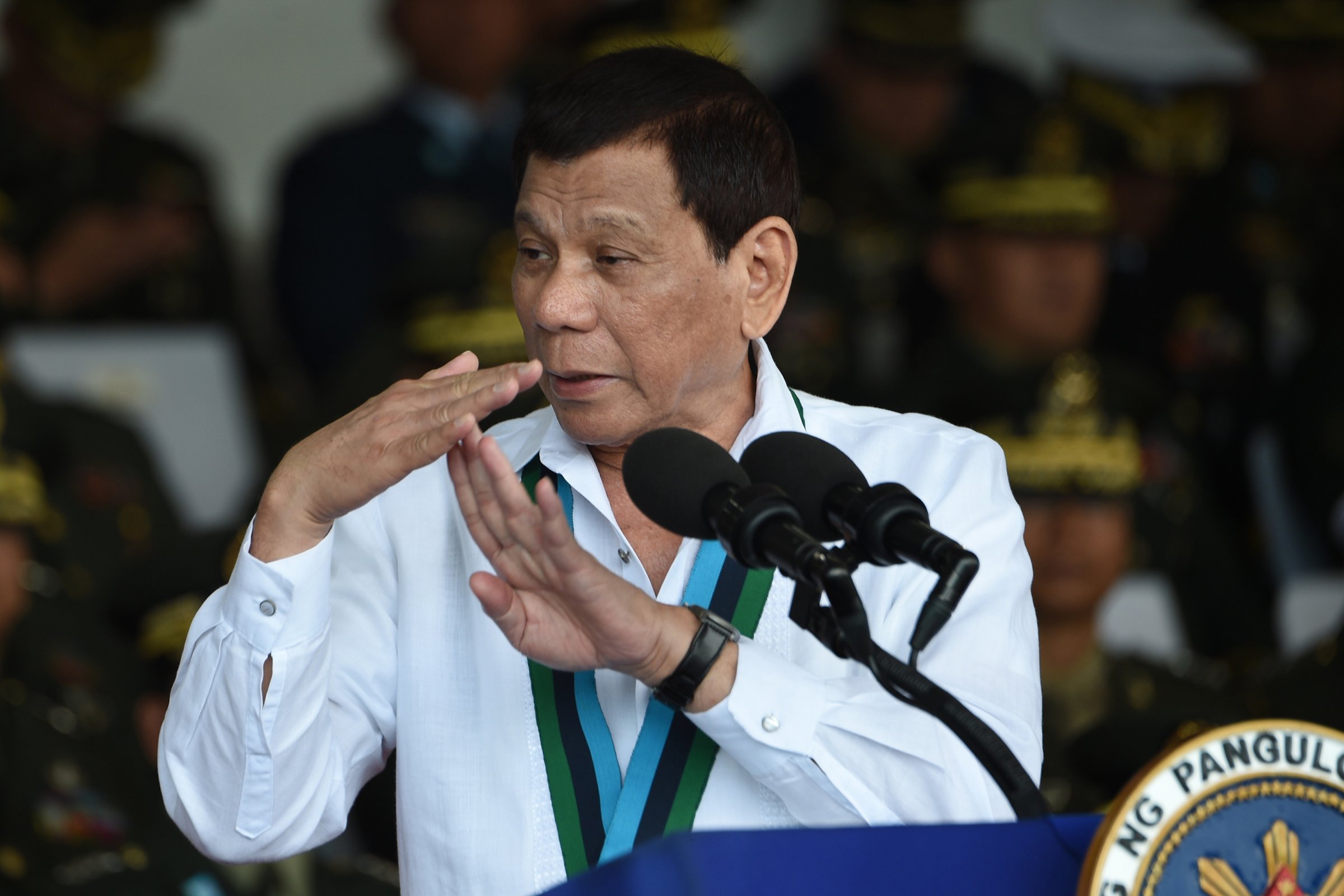
He’s encouraged shooting women in the genitals, bragged about killing his enemies, and called journalists legitimate targets for assassination, but, surprisingly, Philippine President Rodrigo Duterte takes umbrage at being called an autocrat. His spokesperson has lashed out in response to a U.S. intelligence report released last week which branded the strongman among the regional threats to democracy.
“With declarations such as this, it is very difficult to be friendly with the United States,” Harry Roque, the presidential spokesperson told Philippines broadcaster ABS-CBN on Wednesday, adding that the president was taking the report “very seriously”.
The World Threat Assessment Report, published by the Office of the Director of National Intelligence, names Duterte as one of the stumbling blocs for democracy and human rights in Southeast Asia, alongside Cambodia’s leader Hun Sen, Myanmar’s Rohingya crisis and Thailand’s junta.
“Democracy and human rights in many Southeast Asian countries will remain fragile in 2018 as autocratic tendencies deepen in some regimes and rampant corruption and cronyism undermine democratic values,” the report says.
Regarding Duterte and his “signature” war on drugs, it adds: “Duterte has suggested he could suspend the Constitution, declare a ‘revolutionary government’, and impose nationwide martial law.”
Roque rebuffed the assertion that Duterte, who was elected in 2016 and has a penchant for boasting about violence, poses any threat to the region, or to the Philippines.
Duterte “is no autocrat or has autocratic tendencies,” he said in a statement.
Since the report came from the intelligence community, rather than the U.S. State Department, the Philippines government is especially concerned, Roque said.
Duterte has previously accused the CIA of trying to oust him from power and has obsequiously sought closer ties to China. Earlier this week, he aired the idea of sending soldiers to China to receive counterterrorism training, potentially putting aside decades of disputes over the South China Sea to pursue warming ties with Beijing as relations with Washington turn frosty.
However, U.S. President Donald Trump has sought to mend relations. He praised Duterte as doing an “unbelievable job” fighting the drug scourge, and during a visit to Manila last year he made no mention of the human rights abuses or extrajudicial killings that have prompted the International Criminal Court to open a preliminary probe.
On Wednesday, opposition senator Antonio Trillanes reportedly told the Philippines Senate the drug war death toll now stands at least 20,322. He called the killings “state-sponsored executions.”
More Must-Reads From TIME
- The 100 Most Influential People of 2024
- How Far Trump Would Go
- Scenes From Pro-Palestinian Encampments Across U.S. Universities
- Saving Seconds Is Better Than Hours
- Why Your Breakfast Should Start with a Vegetable
- 6 Compliments That Land Every Time
- Welcome to the Golden Age of Ryan Gosling
- Want Weekly Recs on What to Watch, Read, and More? Sign Up for Worth Your Time
Write to Laignee Barron at Laignee.Barron@time.com